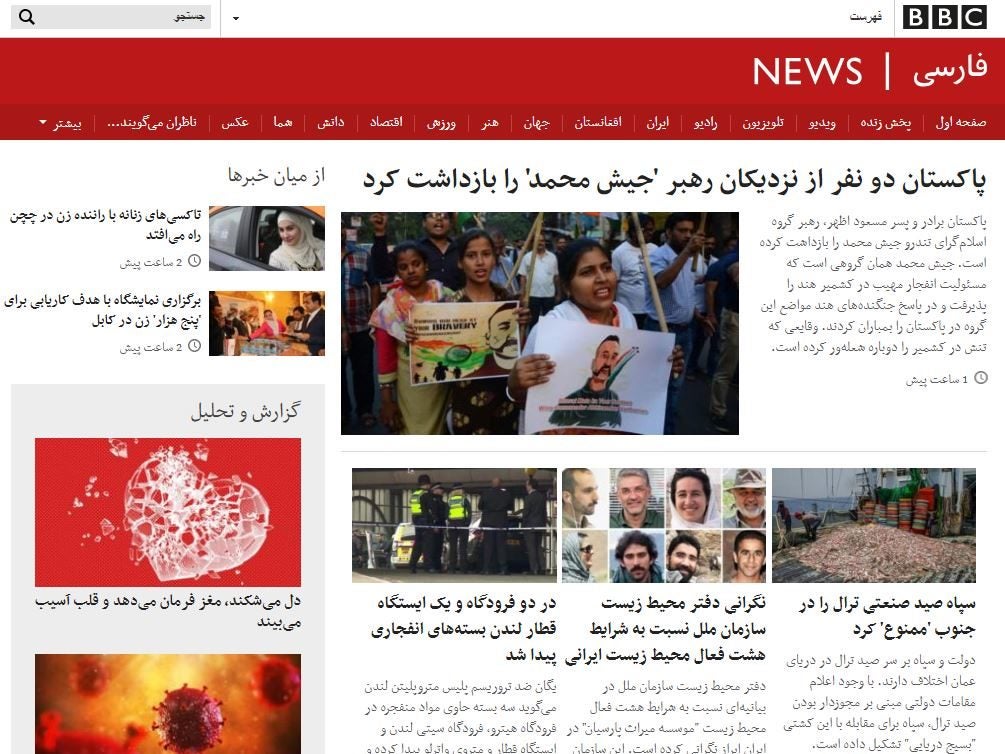
The European Parliament has, for the first time, backed a resolution criticising Iran’s treatment of BBC Persian service journalists and its repression of press freedom more generally.
The BBC has attempted to raise awareness of the persecution faced by more than 150 of its staff, in what has been described as a “collective punishment”, as Iran attempts to silence the news channel.
It has already brought the matter to the attention of the United Nations.
The EU resolution, agreed last week, states: “The Iranian authorities have systematically targeted journalists, including those working for the BBC Persian service, and their families, through the use of criminal investigations, asset freezes, arbitrary arrest, detention, surveillance, harassment, and by spreading false, malicious and defamatory publicity.”
It said that at least eight journalists are currently in detention in Iran.
The Joint Motion for a Resolution was supported by six political groups within the EU Parliament.
It also stated that “freedom of the press, both online and offline, freedom of association and freedom of thought are repressed in Iran”.
Speaking at the EU Parliament in Strasbourg, Jude Kirton-Darling MEP said: “The Iranian authorities have been systematically targeting BBC Persian staff and are moving onto the staff of other European broadcasters as well… Many of those affected are EU/Iranian dual nationals, mostly British Iranians.”
Some staff at BBC Persian have faced attempts to smear their character by superimposing their faces on to pornographic images.
Kirton-Darling said: “I would particularly like to raise awareness about the sexualised defamation campaigns being waged against brave female journalists at BBC Persian and I would call on the EU to no longer be silent about this attack on European women, European journalists.
“We have a duty and a responsibility to defend free journalism.”
Tarik Kafala, controller of BBC World Service Languages, described the passing of the motion as “another important day for BBC Persian”.
He added: “It is encouraging that so many are now aware of what has been happening to our staff and their families and are speaking out in support of media freedom.”
The Iranian authorities have targeted BBC Persian journalists in the UK, and their families in Iran, since the service launched satellite television in 2009. The same year the Iranian government accused foreign powers of interfering in its presidential elections.
International counsel for the BBC World Service, Caoilfhionn Gallagher QC and Jennifer Robinson, also welcomed the resolution.
They said: “This is a historic day for BBC Persian: for the first time, the European Parliament has considered the harassment of BBC Persian staff and their families by Iran, and it has condemned this harassment in the strongest possible terms.
“We must remember that the Iranian authorities’ ongoing attacks on freedom of expression are not only devastating and damaging to the affected journalists and their loved ones.
“They also prevent audiences in Iran and around the world from having access to fair, full and independent reporting about matters of intense public interest. It is critical, now more than ever, that the international community takes action to protect freedom of expression in and concerning Iran.”
UN special rapporteur on the human rights situation in Iran, ProfJavaid Rehman, delivered his first report to the UN Human Rights Council last week, saying he “deplores” the harassment of BBC Persian staff.
Michelle Stanistreet, National Union of Journalists general secretary, said: “Our campaign to stop the harassment will persist until the authorities stop targeting NUJ members for simply doing their jobs. Both the asset freeze and criminal investigations into the activities of journalists and other staff working for BBC Persian should be dropped.”
Jeremy Dear, IFJ deputy general secretary, said: “The persecution must stop. Condemned by the UN, the European Parliament and press freedom campaigners across the globe the Iranian government must halt the harassment, ditch the injunction, end the asset freeze and stop trying to silence independent media voices”.
Email pged@pressgazette.co.uk to point out mistakes, provide story tips or send in a letter for publication on our "Letters Page" blog
